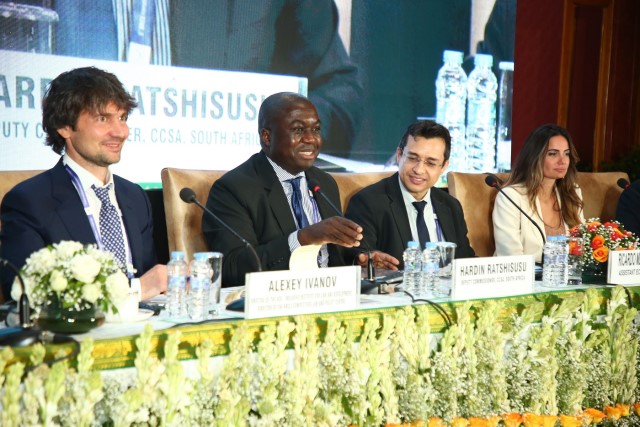NEW DELHI: The BRICS Competition Law and Policy Centre has proposed the development and adoption of a unified protocol for the supervision and control of monopolies in the BRICS region. This proposal was one of the most prominent at the 8th CUTS-CIRC Biennial Conference on Competition, Regulation, and Development held in New Delhi on October 09-10, 2023. The conference brought together expert stakeholders to discuss the future role of BRICS countries from the perspective of antitrust law, including access to healthcare, food security and agriculture, employment and gig economy, and climate change.
The proposal for a joint protocol comes as BRICS countries seek to aggregate negotiating power and strengthen their leverage over large companies. The protocol would require global companies to share the same set of data with regulators in all BRICS countries, creating a regional regime that would allow for a more equitable distribution of value-added, access to technology and data, and ultimately, the achievement of the Sustainable Development Goals.
Experts note that BRICS countries will represent 42% of the world’s population and 36% of global GDP with the addition of six new countries next year. However, the legislative rights of developing countries, which BRICS represents, remain neglected or ignored when it comes to global monopolies. This state of affairs affects not only equitable access to economic control mechanisms but also global food security and the pace of achieving the Sustainable Development Goals.
The BRICS Competition Law and Policy Centre was established in 2018 by the BRICS competition authorities to collect and analyze information from competition authorities, identify best practices, and develop approaches to competition policy that reflect the interests of the development of the BRICS economies. The Centre’s key mission is to advance the development agenda and strengthen the role of competition regulation in overcoming imbalances in the global economy.
The proposal for a joint protocol to control global monopolies and achieve SDGs is a significant step towards creating a new type of consensus where the common good and the Sustainable Development Goals truly matter. By ignoring the rights and interests of developing countries, global monopolies are building a system that does not allow for a qualitative solution to the global challenges facing the human community.

